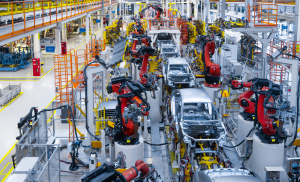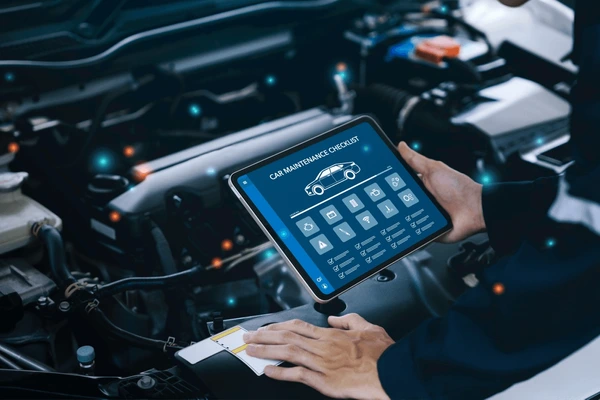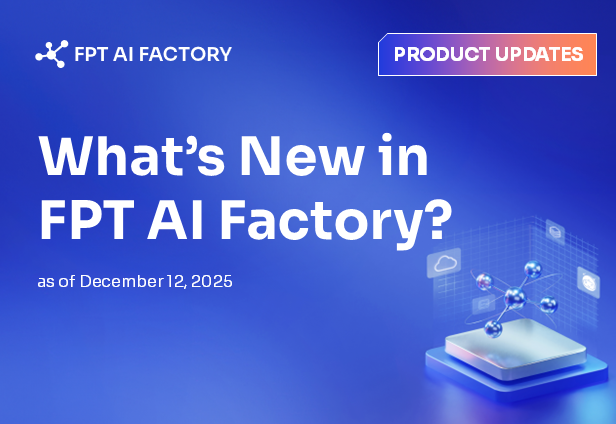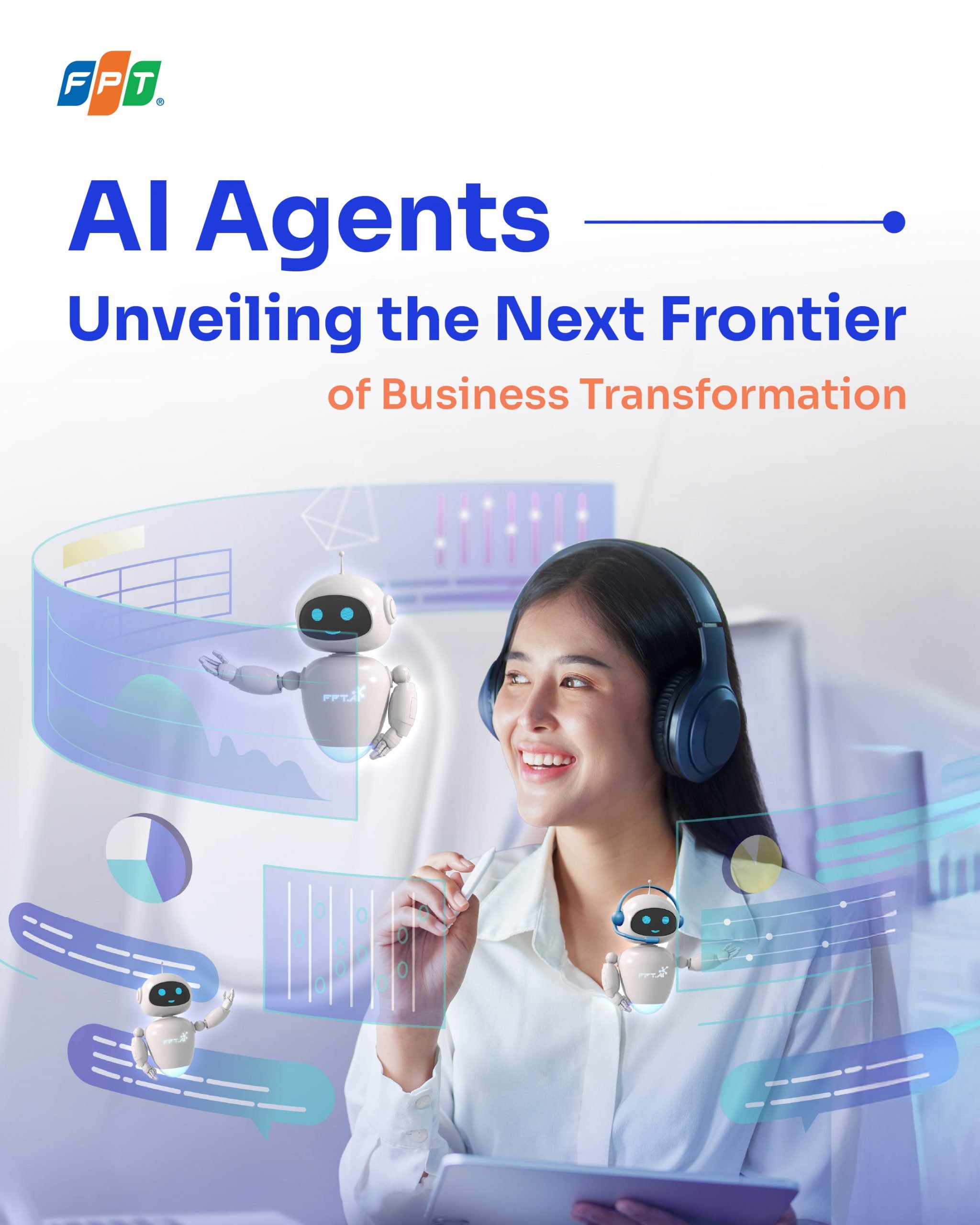The Role of Artificial Intelligence in Shaping the Future of the Automotive Industry
The Role of Artificial Intelligence in Shaping the Future of the Automotive Industry
Table of Contents
Artificial Intelligence (AI) has emerged as a strategic tool as the automotive industry pursues ambitious goals, such as improving operational efficiency, enhancing customer experiences, and prioritizing environmental sustainability.
1. The Significance of AI in the Automotive Industry
With a suite of breakthrough features, AI is enhancing operational performance and optimizing production processes within the automotive sector. According to NVIDIA, European manufacturers, including BMW Group, Maserati, Mercedes-Benz and Schaeffler, are integrating AI into smart production lines, enabling real-time data monitoring and analysis to improve product quality, minimize errors, and increase precision at every stage.
Additionally, AI technologies also support long-term customer relationships by delivering personalized services such as virtual assistants, autonomous driving systems, and after-sales services.
2. Applications of AI in the Automotive Industry
Manufacturing and Supply Chain Management

Artificial Intelligence serves as a critical enabler in automotive production and supply chain management. Companies like BYD have implemented AI on production lines, leveraging intelligent robots and predictive systems to optimize workflows, minimize errors, and increase productivity. These robots are capable of learning and self-adjusting while improving accuracy in tasks such as welding, assembly, and quality inspection.
In supply chain management, AI helps forecast market demand, optimize warehouse operations, and manage logistics efficiently. A notable example is Ford, which uses AI to analyze production and supply chain data, enhancing tracking capabilities, precise component transportation, and on-time delivery.
Furthermore, this technology also contributes to reducing carbon emissions and optimizing operational costs. These benefits are driving the automotive industry closer to a fully smart manufacturing model.
AI in Vehicle Features to Assist Drivers

To ensure safety and elevate the customer experience, leading automakers are deeply integrating AI into modern vehicles. One of the most common applications is Advanced Driver Assistance Systems (ADAS), which include automatic braking, lane departure warnings, adaptive cruise control, and driver drowsiness detection. These systems use artificial intelligence to analyze sensor and camera data, identifying risks and assisting drivers promptly, thereby reducing the likelihood of accidents.
Additionally, in modern vehicles, the Surround View Monitoring (SVM) systems harness artificial intelligence to provide a full 360-degree view of the surroundings. Combining information from cameras and sensors, these systems guide drivers through narrow spaces, facilitate accurate parking, and reduce the risk of collisions. By enhancing situational awareness, SVM contributes to both safety and comfort, providing drivers with a more intuitive and enjoyable experience behind the wheel.
After-Sales Services
Automakers are increasingly integrating artificial intelligence into after-sales services to enhance customer satisfaction and streamline maintenance processes. Intelligent systems can analyze large volumes of vehicle usage data to predict maintenance needs, schedule timely repairs, and suggest parts replacements before issues arise.
In Vietnam, VinFast has implemented AI-driven diagnostics and predictive maintenance tools to provide proactive support to its customers. Globally, Toyota leverages AI to optimize service scheduling, monitor vehicle health, and offer personalized recommendations, improving the overall ownership experience.

3. AI Factory: Providing Next-Gen AI Infrastructure for the Automotive Industry
Robust AI infrastructure serves as a foundational platform, enabling companies to fully leverage the potential of artificial intelligence. With capabilities to process and analyze massive datasets, a strong infrastructure not only optimizes operational performance but also unlocks opportunities for groundbreaking AI innovations. This is particularly crucial in the automotive sector, where technological advancements and data-driven insights can drive significant progress in developing advanced solutions—from autonomous driving to optimized production and supply chain management. Therefore, AI Factory has become an indispensable pillar for the manufacturing industry.
In Europe, NVIDIA is building the world’s first AI factory that will support industrial AI workloads for European manufacturers. This Germany-based AI factory will feature 10,000 GPUs, including through NVIDIA DGX™ B200 systems and NVIDIA RTX PRO™ Servers, and enable Europe’s industrial leaders to accelerate every manufacturing application.
Furthermore, cloud providers in Japan, such as GMO Internet, Highreso, KDDI, Rutilea, SAKURA Internet, and FPT are leveraging NVIDIA-powered AI infrastructure to revolutionize industries including robotics, automotive, healthcare, and telecommunications.
In Asia, FPT launched FPT AI Factory in Japan and Vietnam, equipped with thousands of cutting-edge NVIDIA H100/H200 GPUs, delivering exceptional computing power. With this computational strength, businesses are allowed to drastically reduce research time while accelerating AI solution development and deployment by more than 1,000 times compared to traditional methods. This creates vast opportunities for turning ideas into reality and applying AI to enhance efficiency and innovation across all areas.












